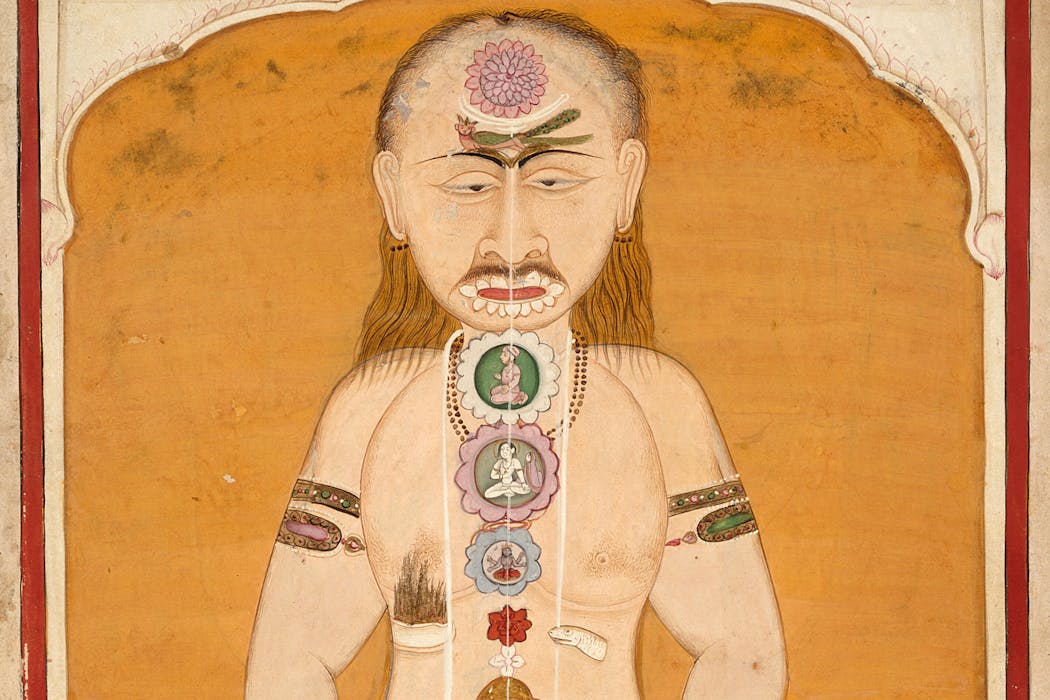Outside the West, the Kundalini tradition presents a model of the ‘divine feminine’ beyond binary gender
- Written by Anya Foxen, Associate Professor of Religious Studies, California Polytechnic State University
 A piece of art shows the tantric tradition's depiction of Kundalini and energy centers – or chakras.Tantrika painting/Wellcome Collection, CC BY
A piece of art shows the tantric tradition's depiction of Kundalini and energy centers – or chakras.Tantrika painting/Wellcome Collection, CC BYThe notion of the divine feminine is a recurring motif in American pop culture, playing with the assumptions people make when referring to God – often the deity described in the Bible –...








